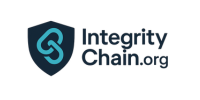Bitwise Industries: High‑Interest Loan Fraud and Ponzi‑like Collapse

Bitwise Industries, a Fresno-based tech education startup founded in 2013, promised to drive tech access through coding boot camps, and coworking campuses. Co-founders Irma Olguin Jr. and Jake Soberal misled backers into believing operations were scaling when in reality, loans and funding were raised through falsified terms. While the pair pled guilty to wire fraud in mid‑2024 and were sentenced to 11 and 9 years in prison, respectively, with $115M restitution, Adler was sentenced in June 2025 to 3 years and 5 months and ordered to pay $9.3M in restitution for his role and syndicated over $20M in hard-money loans with forged documents. While the pair pled guilty to wire fraud in mid‑2024 and were sentenced to 11 and 9 years prison respectively with $115M restitution, Adler was sentenced in June 2025 to 3 years and 5 months and ordered to pay $9.3M in restitution for his role. The firm collapsed and filed for Chapter 7 liquidation in June 2023, revealing a Ponzi-like financial setup.
Timeline of Events
| Date | Event |
|---|---|
| 2019 | Raised $27M Series A to expand campuses nationwide |
| Dec 2022–May 2023 | Adler & Hardcastle syndicated approximately $20M in loans via Startop Investments LLC; investors misled and signatures forged |
| May 2023 | Workforce furloughed; co-CEOs dismissed; company in default |
| June 29, 2023 | Bitwise enters Chapter 7 liquidation |
| Nov 2023 | DOJ charges Olguin and Soberal with $100M+ wire fraud |
| July 2024 | Olguin and Soberal plead guilty; sentenced and ordered to pay $115M in restitution |
| June 2025 | Andrew Adler sentenced to 3 years and 5 months in prison; $9.3M restitution and $1M forfeiture imposed |
Fraud Mechanics
- Altered Loan Agreements: Adler and partner Hardcastle misrepresented interest rates, overwrote terms, and forged co-CEO Jake Soberal’s signature to entice investors into loans that were riskier than stated.
- Ponzi‑style Financing: Early lenders were repaid through new infusions rather than real revenue, masking default and burn rates.
- Circular Capital Flows: Much of the funding fed operational gaps, not genuine tech expansion—still perceived as growth fueling further investor attraction.
Financial Breakdown
| Metric | Value |
|---|---|
| Hard-money loans issued | ~$20M |
| Investor losses | Nearly entire principal of ~$20M |
| Restitution ordered (Olguin & Soberal) | $115M |
| Restitution owed by Adler | $9.3M + $1M forfeiture |
| Prison sentences | Soberal: 11 years; Olguin: 9 years; Adler: 3 years 5 months |
Legal Proceedings & Admission
- Olguin & Soberal: Pled guilty in July 2024 to wire fraud and conspiracy relating to over $100M in funding misused, and were sentenced later that year.
- Adler: Pleaded guilty to conspiracy to commit wire fraud in February 2025; sentencing delivered in June 2025.
Impact & Lessons
- Investor Risk: Borrowers syndicated through opaque structures with undisclosed fees and altered terms.
- Governance Gaps: Lack of oversight on loan syndication and executive authority over fund terms.
- Operational vs Capital Dissimilarity: Growth portrayed via new courses and campuses masked structural insolvency.
- Enforcement Takeaway: The DOJ prosecuted diverse actors—from founders to lenders—with sentences matching the respective scale of their fraud.
Key Takeaways
- Review actual loan terms—inspect signed agreements for interest rates and signatures.
- Treat syndicated debt with skepticism—especially via SPVs or offshore structures.
- Verify for expansion should show capital application tied to deliverables.
- Ensure independent board oversight—especially when founders engage in personal or high-risk financing.



